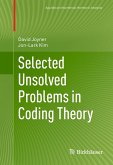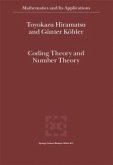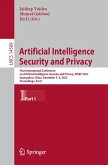This book summarizes recent inventions, provides guidelines and recommendations, and demonstrates many practical applications of homomorphic encryption. This collection of papers represents the combined wisdom of the community of leading experts on homomorphic encryption. In the past 3 years, a global community consisting of researchers in academia, industry, and government, has been working closely to standardize homomorphic encryption. This is the first publication of whitepapers created by these experts that comprehensively describes the scientific inventions, presents a concrete security analysis, and broadly discusses applicable use scenarios and markets. This book also features a collection of privacy-preserving machine learning applications powered by homomorphic encryption designed by groups of top graduate students worldwide at the Private AI Bootcamp hosted by Microsoft Research.
The volume aims to connect non-expert readers with this important new cryptographic technology in an accessible and actionable way. Readers who have heard good things about homomorphic encryption but are not familiar with the details will find this book full of inspiration. Readers who have preconceived biases based on out-of-date knowledge will see the recent progress made by industrial and academic pioneers on optimizing and standardizing this technology. A clear picture of how homomorphic encryption works, how to use it to solve real-world problems, and how to efficiently strengthen privacy protection, will naturally become clear.
Dieser Download kann aus rechtlichen Gründen nur mit Rechnungsadresse in A, B, BG, CY, CZ, D, DK, EW, E, FIN, F, GR, HR, H, IRL, I, LT, L, LR, M, NL, PL, P, R, S, SLO, SK ausgeliefert werden.
"Homomorphic encryption appears as a very acceptable crypto-protection solution with a high level of security, which enables the processing and exchange of data in an encrypted form. ... Protecting privacy through homomorphic encryption offers a certain level of help with this, providing readers with basic insights into homomorphic encryption, the problem environment, and certain practical solutions that have proven to be successful in this area." (F. J. Ruzic, Computing Reviews, June 2, 2023)









